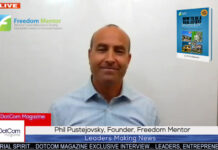Nanotechnology in medicine represents a groundbreaking convergence of science, engineering, and healthcare, promising revolutionary advancements in diagnostics, drug delivery, imaging, and therapy. At the heart of this burgeoning field lies the manipulation of matter at the nanoscale, where materials exhibit unique properties and behaviors, allowing for precise interactions with biological systems. This amalgamation of nanotechnology and medicine holds immense potential to transform the landscape of healthcare, offering tailored solutions to complex medical challenges and unlocking new frontiers in disease management and treatment.
Nanotechnology in medicine encompasses a diverse array of applications, each tailored to address specific medical needs and challenges. One of the most promising areas is targeted drug delivery, wherein nanoparticles serve as vehicles to transport therapeutic agents directly to diseased tissues or cells, minimizing systemic side effects and maximizing treatment efficacy. These nanocarriers can be engineered to navigate through biological barriers, such as the blood-brain barrier, enabling the delivery of drugs to previously inaccessible sites within the body. Moreover, the surface of these nanoparticles can be functionalized with targeting ligands, allowing for precise homing to specific cell types or biomarkers associated with disease, thereby enhancing the therapeutic index of conventional drugs. The marriage of nanotechnology and medicine in drug delivery has the potential to revolutionize treatment paradigms across a spectrum of diseases, from cancer to neurodegenerative disorders, offering personalized and precise interventions tailored to individual patient needs.
Another compelling application of nanotechnology in medicine lies in the realm of diagnostic imaging, where nanoscale contrast agents enable unprecedented visualization of biological structures and processes with high resolution and sensitivity. Nanoparticles engineered with imaging probes, such as fluorescent dyes or magnetic nanoparticles, can be targeted to specific molecular signatures or cellular markers indicative of disease, facilitating early detection and accurate diagnosis. Furthermore, these multifunctional nanoparticles can be designed to exhibit responsive behaviors, such as changes in fluorescence or magnetic properties in the presence of disease-specific biomolecules, enabling real-time monitoring of disease progression and treatment response. By harnessing the power of nanotechnology in medicine, diagnostic imaging modalities can be transformed into powerful tools for early detection, precision staging, and personalized monitoring of disease, thereby improving patient outcomes and prognosis.
In addition to targeted drug delivery and diagnostic imaging, nanotechnology in medicine holds promise for revolutionizing therapeutic interventions through innovative approaches such as nanotherapeutics and regenerative medicine. Nanotherapeutics encompass a diverse range of nanoparticle-based therapies, including photothermal therapy, gene therapy, and immunotherapy, each offering unique mechanisms of action and therapeutic benefits. For instance, nanoparticles can be engineered to absorb and convert light energy into heat, selectively ablating cancer cells while sparing surrounding healthy tissues in photothermal therapy. Similarly, nanocarriers can be utilized to deliver therapeutic genes or nucleic acids to target cells, modulating gene expression and correcting genetic defects in gene therapy. Furthermore, nanoparticles can be designed to modulate the immune system, enhancing the body’s natural defenses against cancer or infectious diseases in immunotherapy. By leveraging the unique properties of nanomaterials, these innovative nanotherapeutic approaches hold the potential to overcome many of the limitations associated with conventional treatments, offering safer, more effective, and personalized therapeutic options for patients.
Regenerative medicine, another frontier in nanotechnology-enabled healthcare, aims to restore, replace, or regenerate damaged tissues and organs through the use of biomaterials and stem cells. Nanotechnology plays a pivotal role in this field by providing platforms for precise control over cellular behavior and tissue regeneration. For instance, nanoscale scaffolds fabricated from biocompatible materials can mimic the extracellular matrix, providing mechanical support and biochemical cues to guide cell growth and differentiation. Additionally, nanoparticles can be loaded with growth factors or signaling molecules to modulate cellular processes and promote tissue regeneration. Furthermore, nanotechnology enables the creation of artificial microenvironments that mimic the native tissue niche, facilitating the culture and expansion of stem cells for therapeutic applications. By harnessing the regenerative potential of nanotechnology, researchers are developing innovative strategies to repair and regenerate tissues damaged by injury, disease, or aging, offering new hope to patients with debilitating conditions and disorders.
Nanotechnology in medicine represents a paradigm shift in healthcare, offering transformative solutions to longstanding medical challenges and unmet clinical needs. From targeted drug delivery and diagnostic imaging to innovative therapeutics and regenerative medicine, the marriage of nanotechnology and medicine holds immense promise for improving patient outcomes, enhancing quality of life, and advancing the frontiers of biomedical research and practice. As researchers continue to push the boundaries of nanoscience and engineering, the future of medicine shines bright with possibilities, where precision, personalization, and efficacy converge to redefine the art and science of healing.
As researchers delve deeper into the intricacies of nanotechnology in medicine, interdisciplinary collaborations are flourishing, bringing together experts from fields as diverse as materials science, biology, engineering, and clinical medicine. This convergence of expertise fosters innovation and drives the development of novel nanotechnologies with tailored functionalities and applications. Moreover, the translation of these cutting-edge technologies from the laboratory to the clinic requires close collaboration between academia, industry, and regulatory agencies to ensure safety, efficacy, and compliance with stringent quality standards. Regulatory bodies play a crucial role in evaluating the safety and efficacy of nanotechnology-based medical products, establishing guidelines and regulations to govern their development, manufacturing, and clinical use. Furthermore, public awareness and education about the potential benefits and risks of nanotechnology in medicine are essential to foster informed decision-making and ensure societal acceptance of these transformative technologies.
Looking ahead, the future of nanotechnology in medicine holds immense promise, with ongoing research efforts focused on addressing key challenges and unlocking new opportunities for innovation. Advances in nanomaterials design, fabrication techniques, and functionalization strategies continue to expand the toolbox available to researchers, enabling the development of increasingly sophisticated nanotechnologies with enhanced capabilities and performance. Furthermore, interdisciplinary collaborations and cross-disciplinary approaches are driving convergence in fields such as nanomedicine, bioinformatics, and artificial intelligence, leading to synergistic innovations that push the boundaries of what is possible in healthcare. From the development of smart nanosystems capable of autonomous drug delivery to the integration of nanotechnology with emerging technologies such as 3D bioprinting and organ-on-a-chip platforms, the future of medicine is poised to be shaped by the transformative potential of nanotechnology.
However, amidst the excitement and optimism surrounding nanotechnology in medicine, it is essential to remain mindful of the ethical, social, and environmental implications of these technologies. As with any disruptive innovation, nanotechnology raises important questions about equity, access, and affordability, particularly in the context of healthcare disparities and global health challenges. Moreover, concerns regarding the potential toxicity and environmental impact of nanomaterials underscore the need for responsible innovation and sustainable practices in the development and deployment of nanotechnology-based medical products. By proactively addressing these ethical, social, and environmental considerations, stakeholders can ensure that the benefits of nanotechnology in medicine are equitably distributed and responsibly managed, ultimately realizing its full potential to improve human health and well-being on a global scale.
In conclusion, nanotechnology in medicine represents a transformative frontier in healthcare, offering unprecedented opportunities to revolutionize diagnostics, therapeutics, and regenerative medicine. From targeted drug delivery and diagnostic imaging to innovative therapies and tissue engineering, nanotechnology holds the promise of personalized, precise, and effective healthcare solutions tailored to individual patient needs. As researchers continue to innovate and collaborate across disciplines, the future of nanotechnology in medicine shines bright with possibilities, where scientific discovery, technological innovation, and compassionate care converge to advance the frontiers of human health and well-being.

















